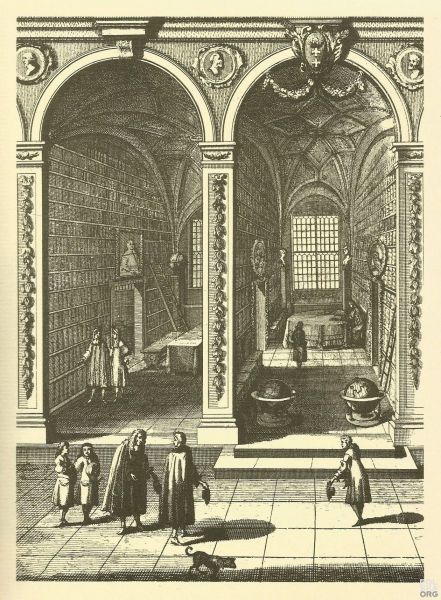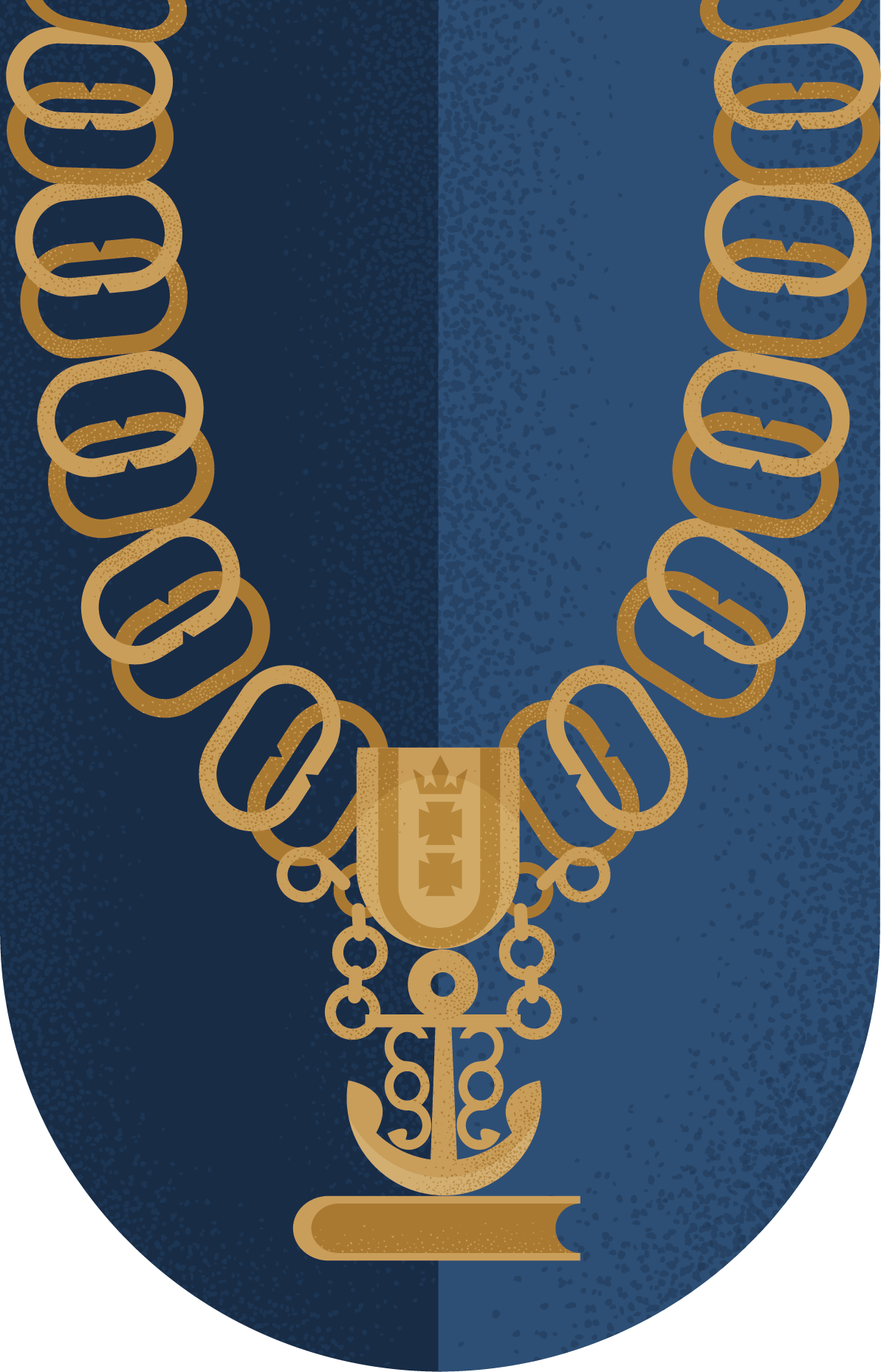History
History of our Faculty
History
 The Faculty of Law and Administration of the University of Gdańsk follows in the centuries-old tradition of teaching law in Gdańsk. Its origins date back to the sixteenth century when academic gymnasiums began to be established in the territory of Royal Prussia within the Polish-Lithuanian Commonwealth. Thanks to the high level of research and teaching, they had a significant impact on the development of education throughout the country. Such institutions were established in Elbląg, Toruń and Gdańsk, where on 13 June 1558, the Gdańsk Gymnasium (Latin: Gymnasium Gedanense, Gymnasium Dantiscanum) was founded. It was a humanist gymnasium that operated in the late Gothic building of the former Franciscan monastery taken over by the city (this building now houses the National Museum of Gdańsk). In 1580, the school was reformed and transformed into the Gdańsk Academic Gymnasium (Latin: Gymnasium Academicum Illustre, Athenae Gedanenses) that began to implement a partial university programme. Moreover, the organisational structure of the gymnasium was identical to other universities of the time. A total of seven departments and a Polish language lectureship were established over the years. Among them was the Department of Law, established in 1584, which was transformed into the Department of Law and History in 1603. In the hierarchy of the departments of the Gdańsk Academic Gymnasium, it held second position (after the Department of Theology), and the professor in charge of it was a vice-rector. Among other things, the curriculum included Roman law, civil law, procedural law, law of nations, law of nature, maritime law, and public law with elements of the political system of the Polish-Lithuanian Commonwealth, Royal Prussia and the city of Gdańsk itself. The level of teaching was evidenced by the fact that the students of the Gymnasium were able to transfer to more advanced university studies – most often to the third year.
The Faculty of Law and Administration of the University of Gdańsk follows in the centuries-old tradition of teaching law in Gdańsk. Its origins date back to the sixteenth century when academic gymnasiums began to be established in the territory of Royal Prussia within the Polish-Lithuanian Commonwealth. Thanks to the high level of research and teaching, they had a significant impact on the development of education throughout the country. Such institutions were established in Elbląg, Toruń and Gdańsk, where on 13 June 1558, the Gdańsk Gymnasium (Latin: Gymnasium Gedanense, Gymnasium Dantiscanum) was founded. It was a humanist gymnasium that operated in the late Gothic building of the former Franciscan monastery taken over by the city (this building now houses the National Museum of Gdańsk). In 1580, the school was reformed and transformed into the Gdańsk Academic Gymnasium (Latin: Gymnasium Academicum Illustre, Athenae Gedanenses) that began to implement a partial university programme. Moreover, the organisational structure of the gymnasium was identical to other universities of the time. A total of seven departments and a Polish language lectureship were established over the years. Among them was the Department of Law, established in 1584, which was transformed into the Department of Law and History in 1603. In the hierarchy of the departments of the Gdańsk Academic Gymnasium, it held second position (after the Department of Theology), and the professor in charge of it was a vice-rector. Among other things, the curriculum included Roman law, civil law, procedural law, law of nations, law of nature, maritime law, and public law with elements of the political system of the Polish-Lithuanian Commonwealth, Royal Prussia and the city of Gdańsk itself. The level of teaching was evidenced by the fact that the students of the Gymnasium were able to transfer to more advanced university studies – most often to the third year.The activities of the Gdańsk Academic Gymnasium were suspended on 10 November 1817. The primary cause was the collapse of the city’s finances, particularly evident after the Napoleonic Wars. However, over two years of teaching law in the gymnasium had an undeniable influence on the originality of Gdańsk law, which was the best system of law that developed in the Polish-Lithuanian Commonwealth before 1795.
The plans for the establishment of the University of Gdańsk, which was also intended to teach law, date back to the time of Sigismund III Vasa. These were not realised partly because of religious tensions between the catholic king and the mostly protestant Gdańsk patricians. The reluctance of the city authorities regarding too much independence of a potential future university was also not without significance. Later, the idea of establishing a university was not facilitated by the turbulent history of the city, located at a sensitive point in Europe. In 1795 the Polish-Lithuanian Commonwealth ceased to exist due to the partition by the neighbouring countries. As a result, the first higher education institution in Gdańsk became the Royal Higher School of Technology (the future Gdańsk University of Technology). It was established in 1904 to train professional personnel for the shipbuilding industry. The educational authorities of the Kingdom of Prussia and the Empire of Germany and later of the Free City of Gdańsk (Gdańsk was within their borders between 1795 and 1939), were not interested in establishing a non-technical university.
|
 |

Currently, the Faculty consists of 23 departments and divisions and the staff includes ten full professors, 37 university professors, 61 PhD holders, and 31 master’s degree holders.
Timeline:
- 1558 – Gdańsk Gymnasium
- 1584 – Department of Law at the Gdańsk Academic Gymnasium (former Gdańsk Gymnasium)
- 1970 – University of Gdańsk is founded
- 5 Oct 1970 – first session of the Faculty of Law and Administration Council
- 1971 – first law students at the University of Gdańsk Faculty of Law and Administration
- 1972 – Faculty of Law and Administration receives the right to confer the PhD degree
- 1980 – Faculty of Law and Administration receives the right to confer the doktor habilitowany degree
- 1986 – Prof. Władysław Wolter receives an honorary degree
- 1993 – Francois Mitterand receives an honorary degree
- 1996 – construction of new Faculty of Law and Administration building begins
- 2000 – first lectures in the new Faculty of Law and Administration building
- 2008 – Prof. Ewa Łętowska receives and honorary degree
- 2013 – Criminology programme is launched with record student interest – 44 applicants per place
- 2013 – Law studies introduce an innovative curriculum, which is unique nationally
- 2013 – Bernard Baron von Maydell receives an honorary degree
- 2014 – European Business Administration programme is launched
- 2017 – European and International Business Law programme is launched
- 2017 – Faculty of Law and Administration receives an A category rating
- 2017 – Prof. Lech Garlicki receives an honorary degree
- 2019 – Faculty of Law and Administration hosts Global Law Deans’ Forum and the annual International Association of Law Schools (IALS) forum.
- 2020 – Criminology and Criminal Justice programme is launched
The project is financed by the Polish National Agency for Academic Exchange





